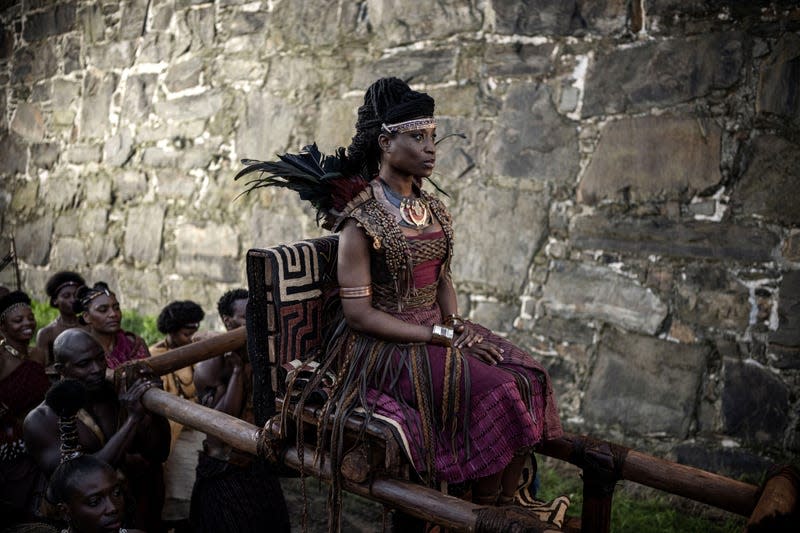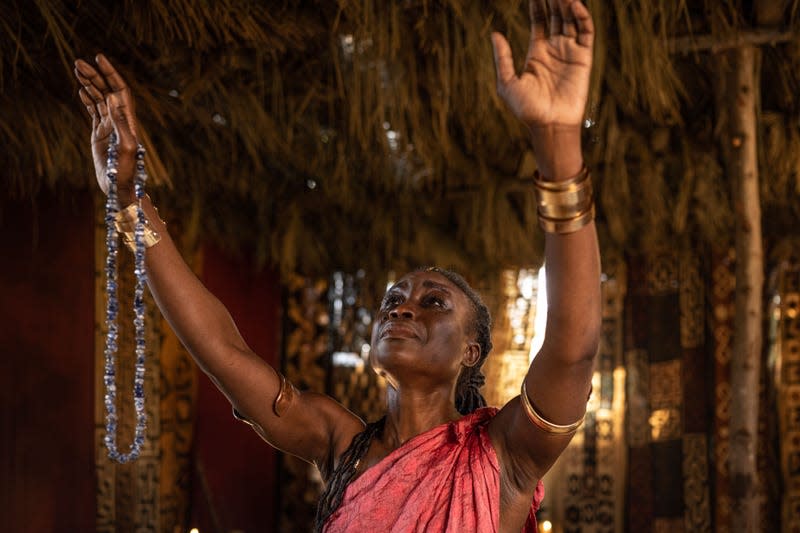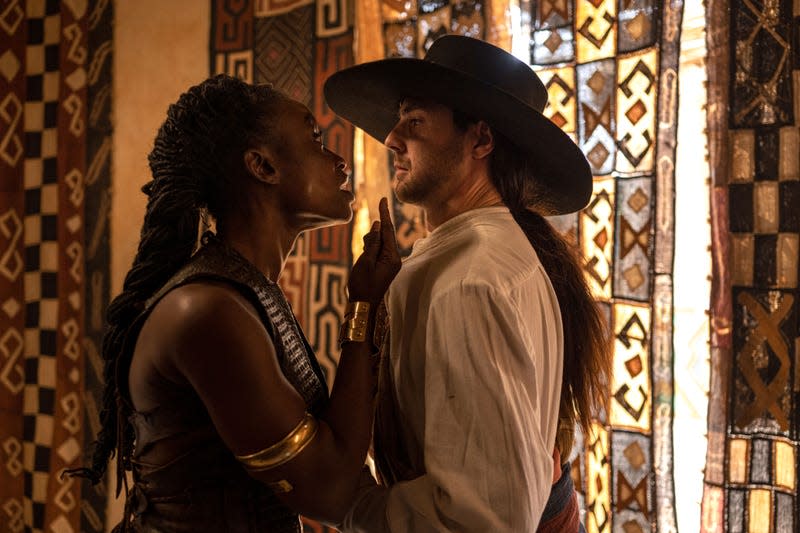Netflix releases a new docuseries on African Queens
Queen Njinga of Ndongo and Matamba—now present-day Angola—has just made her debut on Netflix’s new series African Queens released today, which will highlight the stories of prominent African female rulers.
The docuseries, executive produced and narrated by Jada Pinkett Smith, has so far been picked up for two seasons and will cover the stories of Queen Njinga and Cleopatra over four 45-minute episodes.
Read more
Netflix described the show as “blending dramatization with documentary,” as the docuseries combines factual recounts from historians with elements of fiction. It also features the voice of Her Royal Highness Queen Diambi Kabatusuila, the current Queen of the Bakwa Luntu People in the Democratic Republic of Congo.
Jada Pinkett Smith’s ‘African Queens’
Speaking at the premiere held at the School of Oriental and African studies (SOAS) in London, Pinkett Smith said the inspiration behind the docuseries stemmed from a conversation with her daughter.
“I was asking Willow what makes a queen and as we started talking about that, I started thinking about that question from more of a historical context. That is when the idea sprouted in my mind.”
“We need to have more information and more content around Black queens that have lived. There is just not a lot of accessible content around these stories.”
Blending dramatization with documentary, African Queens: Njinga traces the rise and reign of Queen Njinga of Angola amid family betrayal and political rivalries.
African Queens: Njinga series premieres February 15, 2023 only on @netflix. pic.twitter.com/uVXE9gvCAx— Jada Pinkett Smith (@jadapsmith) February 7, 2023
Untold stories of African heroines
African Queens is one of the newest initiatives bidding to highlight the lost stories of African female warriors and rulers and the role they played in laying the groundwork for independence. The series follows in the footsteps of The Woman King, a period action film, which tells the story of the Agojie—a brigade of female warriors in Dahomey, present-day Benin.
Kenya’s warrior, Mekatilili wa Menza, who led an army of women and men against British colonial rule has similarly been honored through an animated photography project. While in Zambia, women’s stories and histories are being documented in a digital archive in the Museum of Women’s History, which was opened in 2016.
In African Queens, it is Queen Njinga, who ruled the kingdoms of Ndongo and Matamba, located in present-day Angola during the 17th century, who takes center stage. Born into the ruling family in Ndongo, she assumed power after the death of her father and brother.
The nation’s first female ruler, Queen Njinga, quickly became an icon of resistance as she sought to fend off Portuguese colonists.



Queen Njinga of Ndongo and Matamba
In the show’s synopsis, Njinga is described as having “a reputation for her blend of political and diplomatic skill with military prowess.” Before she assumed the throne she was enlisted by the former king to negotiate for peace with the Portuguese Governor. Her reign lasted nearly 40 years.
“It was very important to have African writers,” said Kenyan-born writer, Peres Owino, who co-wrote the series together with NneNne Iwuji-Eme. “[Production company, Nutopia] wanted the African perspective on this story, which is different from a lot of the content you see.”
“This is specifically the lens of African women and how we see ourselves, not how others see us or interpret who we are.”
Owino says that the partnership with Netflix will ensure that Njinga’s unknown story can be taken across the world.
“Njinga is the story of the beginning of the African diaspora. You figure out the people that are left behind and the people who are taken. That spans from Africa all the way to the Caribbean, the US and Latin America.”
“But at the end of the day it is also a story about a human being and the pressure that was put upon her.”
While the docuseries has so far been picked up for two seasons, lead actress, Adesuwa Oni, said more could be on the way.
“Our history is that expansive—it could just run and run and I think that is a good thing.”
More from Quartz
Sign up for Quartz's Newsletter. For the latest news, Facebook, Twitter and Instagram.


